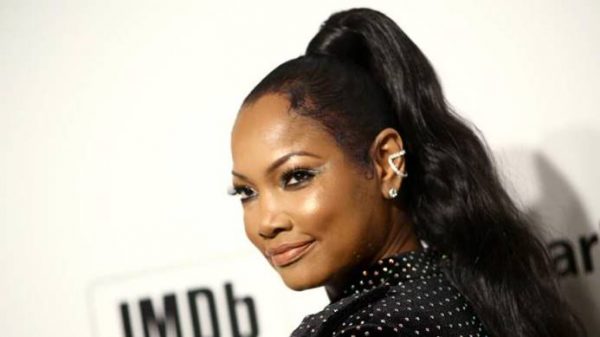*”Star Wars” conductor Anthony Parnther — whose credits include “The Mandalorian,” “The Book of Boba Fett” and ‘”bi-Wan Kenobi’— will make his Carnegie Hall debut with an all-Black orchestra.
Per THR, on April 24, Panther will serve as guest conductor and lead the Gateways Music Festival Orchestra in performances of works by composers George Walker, Florence Price and Jon Batiste. According to the report, Batiste will join the orchestra on piano for the premiere of his new work “I Can.”
“He is mesmerizing, on the podium and in real life,” says Lee Koonce, president and artistic director of Gateways Music Festival. “He is like a force of nature. He’s this enormous presence. And many people have worked with him in Hollywood. A lot of our musicians played in Black Panther [Parnther is conducting performances of Göransson’s score for the Marvel film at concert halls around the country]. So they knew him. They knew his work. They knew his work ethics, they knew this high level of musicianship. And so he was the musicians first choice.”
OTHER NEWS: Will Smith Said to be ‘Flooded with Offers’ Despite Oscar Slap
‘Star Wars’ Maestro Anthony Parnther on His Carnegie Hall Debut With All-Black Orchestra https://t.co/lWuf67DlNj
— The Hollywood Reporter (@THR) April 14, 2022
Parnther dished with THR about Black American classical musicians, noting that “The difference between privilege and underprivilege is opportunity.”
Below are excerpts from the interview.
You went to Northwestern and then Yale, where you studied conducting. Did you know at that point that you wanted to make a career out of it?
I knew that I just wanted to make music however I could. And ideally, I wanted to do both — playing and conducting. Because I had so much admiration for Leonard Bernstein, and sometimes he sat at the piano. I tried to take up the piano, and was pretty miserable at it. I still am to this day. But I wanted to be the kind of musician who could do a little bit of everything. So I still play [the bassoon] and I’m a very active player to this day. As a conductor, I think you have a responsibility to play your instrument as well as you can before you ask somebody else to play their instrument.
What are the differences between conducting a Hollywood score and conducting a symphonic orchestra for a concert?
Well, the main difference — in general, not always — is that when I’m conducting a film score, the composer is usually 20 feet away. And alive. (Not that I’m always only conducting the music of deceased composers for symphonic orchestras.) But they are very different responsibilities. I just treat each day differently: Today my responsibility is to Ludwig Goransson [composer of the Mandalorian and Turning Red, among many other scores]. And then the next day, my responsibility is to Ludwig von Beethoven. I actually just came up with that. I feel pretty clever for that. The two most famous Ludwigs!
How did your engagement with the Gateways Festival Orchestra come about?
I’ve admired the gateways Festival Orchestra for a long time. I’ve known about it for at least 15 years. And the longtime music director, Michael Morgan, was a conductor of international renown. And he conducted one of the other big orchestras here in California for many years, the Oakland Symphony. When I was beginning as an undergraduate, that was the end of his time as the associate conductor of the Chicago Symphony Orchestra. And that’s one of the very, very few times that an African American has had a post of that magnitude at an orchestra of that level of importance. So he’s been a significant figure in classical music for 35 to 40 years. Before he passed away [in August 2021], my plan had been to attend the Carnegie Hall concert. But I was deeply honored that, of all the wonderful conductors the Gateways Festival Orchestra could have hired, they chose me.
How does the mission of the Gateways Festival Orchestra to showcase the talent of Black musicians resonate with you, given the lack of representation of Black musicians in symphonic orchestras?
Well, it resonates deeply because there’s a myth that there is a lack of qualified black classical musicians. And I can tell you that the lack is not in the availability of qualified musicians. The lack is in the platform or the access to institutions in order for those musicians to flourish. So when people say, “Well, I just don’t know any qualified black musicians,” well, you’re about to see an orchestra of 100 of them, all in the same spot. But I can tell you that that is a fraction of the people that I know, and am I’m aware of, that have the same level of training, expertise and experience, but just don’t have the platform to play in a lot of professional symphony orchestras. We account for so few of working professional, classical musicians that, you know, oftentimes I’m almost always the only person of color — from an underrepresented minority, anyways — in the room. And I think that that’s true for the vast majority of the people who will be in the Gateways Orchestra. So this is a safe space where a whole community of musicians who have some very specific things in common culturally, and life experiences can come together and make this beautiful music and share beauty.
Read the full interview here.
We Publish News 24/7. Don’t Miss A Story. Click HERE to SUBSCRIBE to Our Newsletter Now!





